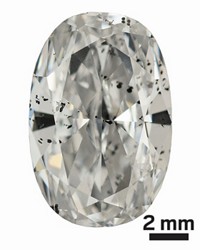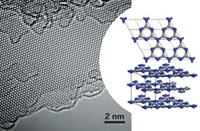Advertisement
Grab your lab coat. Let's get started
Welcome!
Welcome!
Create an account below to get 6 C&EN articles per month, receive newsletters and more - all free.
It seems this is your first time logging in online. Please enter the following information to continue.
As an ACS member you automatically get access to this site. All we need is few more details to create your reading experience.
Not you? Sign in with a different account.
Not you? Sign in with a different account.
ERROR 1
ERROR 1
ERROR 2
ERROR 2
ERROR 2
ERROR 2
ERROR 2
Password and Confirm password must match.
If you have an ACS member number, please enter it here so we can link this account to your membership. (optional)
ERROR 2
ACS values your privacy. By submitting your information, you are gaining access to C&EN and subscribing to our weekly newsletter. We use the information you provide to make your reading experience better, and we will never sell your data to third party members.
Physical Chemistry
Single-atom heat engine created
Calcium ion acts like a flywheel in phenomenon predicted by Feynman
by Elizabeth K. Wilson
April 18, 2016
| A version of this story appeared in
Volume 94, Issue 16
A German team has fulfilled a prediction made decades ago by physicist Richard Feynman: a heat engine composed of a single atom (Science 2016, DOI: 10.1126/science.aad6320). Heat engines, which convert thermal energy to mechanical work, have been used in various forms for several hundred years. Over the past decade, scientists have designed ever-smaller heat engines, with the smallest being composed of a single molecule. Now, the German team, led by Kilian Singer of the University of Kassel and Johannes Rossnagel of the University of Mainz, has trapped a calcium ion (40Ca+) and alternately cooled and heated it with lasers and electric fields. The temperature differences produced by heating and cooling caused the atom to oscillate harmonically in an axial direction, “similar to the flywheel of a mechanical engine,” the authors say. They envision a wide variety of future applications, such as single-atom refrigerators and pumps.




Join the conversation
Contact the reporter
Submit a Letter to the Editor for publication
Engage with us on Twitter